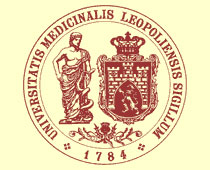Journal of interferon & Cytokine research 27; 682 (2007) International society for interferon & Cytokine research Interferon anniversary meeting 50th Anniversary of the Discovery of interferon, September 16-19, 2007
Objective
Neuropsychiatric symptoms are commonly associated with chronic hepatitis C virus infection, its sequelae, and its treatment. In particular, interferon, a primary component of treatment for chronic hepatitis C, has been strongly associated with depressive symptoms.
Background
The study objective was to determine the contribution of interferon-induced depression to a predictive model of sustained virological response (SVR) in chronic hepatitis C.
Methods : 14 therapy-naïve hepatitis C virus (HCV) outpatients received treatment with peginterferon alfa-2a and ribavirin. Neuropsychiatric side effects were monitored prospectively (Depression Scale, DSM-IV criteria for major depression). SVR was defined as a failure to detect HCV by PCR 24 weeks after therapy.
Results
SVR rate was 64.3% (9 of 14 patients). Classification data and the extent of interferon-induced depression were not significantly linked to SVR. Virus genotype (p < 0.05) and gender (p < 0.02) contributed significantly to a logistic regression model. Mean (p > 0.5) and maximum (p> 0.5) depression increases were no significant predictors of SVR. Major depression rates (DSM-IV criteria) were 22.1% (2 of 9 patients) in the subgroup with SVR and 20.0% (1 of 5) in patients without SVR.
Conclusions
We found no significant association between depression and the efficacy of antiviral treatment in chronic hepatitis C. Interferon-induced depressive symptoms are important to be monitored and treated if necessary; however, they cannot be used to predict therapy success.


